Related Research Articles

The Gender Recognition Act 2004 is an act of the Parliament of the United Kingdom that allows people who have gender dysphoria to change their legal gender. It came into effect on 4 April 2005.
The Employment Non-Discrimination Act (ENDA) is legislation proposed in the United States Congress that would prohibit discrimination in hiring and employment on the basis of sexual orientation or, depending on the version of the bill, gender identity, by employers with at least 15 employees.
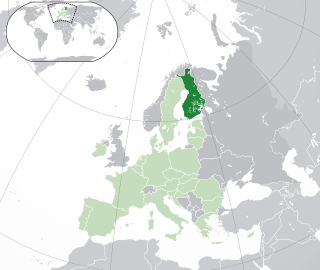
Lesbian, gay, bisexual, and transgender (LGBT) rights in Finland are among the most advanced in Europe. According to an annual ILGA report, Finnish LGBT legislation is among the most extensive and developed legislations in Europe. Compared to fellow Nordic countries, it ranks near the top, outranked only by neighbouring Norway. Both male and female same-sex sexual activity have been legal in Finland since 1971 with "promotion" thereof decriminalized and the age of consent equalized in 1999, and homosexuality declassified as an illness in 1981. Discrimination based on sexual orientation in areas such as employment, the provision of goods and services, etc., was criminalized in 1995 and discrimination based on gender identity in 2005.

Attitudes in Ireland towards lesbian, gay, bisexual, and transgender (LGBT) people are among the most liberal in the world. Ireland is notable for its transformation from a country holding overwhelmingly conservative attitudes toward LGBT issues, in part due to the opposition of the Roman Catholic Church, to one holding overwhelmingly liberal views in the space of a generation. In May 2015, Ireland became the first country to legalise same-sex marriage on a national level by popular vote. The New York Times declared that the result put Ireland at the "vanguard of social change". Since July 2015, transgender people in Ireland can self-declare their gender for the purpose of updating passports, driving licences, obtaining new birth certificates, and getting married. Both male and female same-sex sexual activity have been legal in the state since 1993. Government recognition of LGBT rights in Ireland has expanded greatly over the past two decades. Homosexuality was decriminalised in 1993, and most forms of discrimination based on sexual orientation are now outlawed. Ireland also forbids incitement to hatred based on sexual orientation.

Lesbian, gay, bisexual, and transgender (LGBT) rights in New Zealand are among the most progressive in the world, and the country is considered to be gay-friendly. The protection of LGBT rights is advanced, relative to other countries in Oceania, and is one of the most liberal in the world, with the country being the first in the region and thirteenth in the world to enact same-sex marriage.
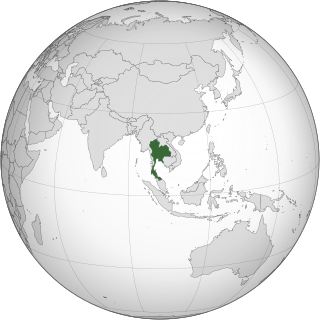
Lesbian, gay, bisexual, and transgender (LGBT) people in Thailand face legal challenges not experienced by non-LGBT residents. Both male and female same-sex sexual activity are legal in Thailand, but same-sex couples and households headed by same-sex couples are not eligible for the same legal protections available to opposite-sex couples. About eight percent of the Thai population, five million people, are thought to be in the LGBT demographic.
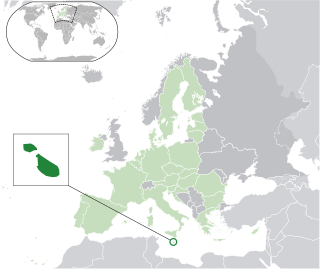
Lesbian, gay, bisexual and transgender (LGBT) rights in Malta are of the highest standards, even in comparison to other European countries. Throughout the late 20th and early 21st centuries, the rights of the LGBT community received more awareness and same-sex sexual activity was legalized in 1973, with an equal age of consent.
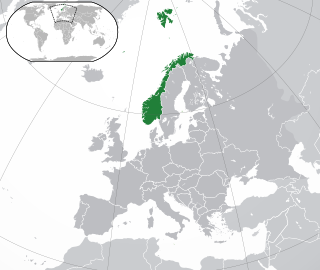
Norway, like the other Scandinavian countries, is very progressive in regards to lesbian, gay, bisexual and transgender (LGBT) rights. In 1981, Norway became one of the first countries in the world to enact an anti-discrimination law explicitly including sexual orientation. Same-sex marriage, adoption, and assisted insemination treatments for lesbian couples have been legal since 2009. In 2016, Norway became the fourth country in Europe to pass a law allowing the change of legal gender for transgender people based on self-determination.

Lesbian, gay, bisexual, transgender (LGBT) rights in Switzerland are progressive by European standards. Their history is one of liberalisation at an increasing pace since the 1940s, in parallel to the legal situation in Europe and the Western world more generally. Legislation providing for same-sex marriage, same-sex adoption, and IVF access was accepted by 64% of voters in a referendum on 26 September 2021, and entered into force on 1 July 2022.

Lesbian, gay, bisexual and transgender (LGBT) rights in Uruguay are among the most advanced in both Latin America and the world in general. Same-sex sexual activity has been legal with an equal age of consent since 1934. Anti-discrimination laws protecting LGBT people have been in place since 2004. Civil unions for same-sex couples have been allowed since 2008 and same-sex marriages since 2013, in accordance with the nation's same-sex marriage law passed in early 2013. Additionally, same-sex couples have been allowed to jointly adopt since 2009 and gays, lesbians and bisexuals are allowed to serve openly in the military.

Lesbian, gay, bisexual, transgender (LGBT) persons in Puerto Rico have almost the same protections and rights as heterosexual individuals. Public discussion and debate about sexual orientation and gender identity issues has increased, and some legal changes have been made. Supporters and opponents of legislation protecting the rights of LGBT persons can be found in both of the major political parties. Public opposition still exists due, in large part, to the strong influence of the Roman Catholic Church, as well as socially conservative Protestants. Puerto Rico has a great influence on the legal rights of LGBT citizens. Same-sex marriage has been legal in the commonwealth since July 2015, after the U.S. Supreme Court ruled in the case of Obergefell v. Hodges that same-sex marriage bans are unconstitutional.

Lesbian, gay, bisexual, transgender (LGBT) rights in Scotland are generally in line with the rest of the United Kingdom, which have evolved extensively over time and are now regarded as some of the most progressive in Europe. In both 2015 and 2016, Scotland was recognised as the "best country in Europe for LGBTI legal equality".

Lesbian, gay, bisexual, and transgender (LGBT) persons in Guatemala face legal challenges not experienced by non-LGBT residents. Both male and female same-sex sexual activity are legal in Guatemala.
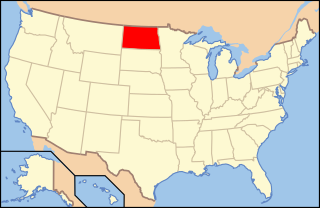
Lesbian, gay, bisexual, and transgender (LGBT) persons in the U.S. state of North Dakota may face some legal challenges not experienced by non-LGBT residents. Same-sex sexual activity is legal in North Dakota, and same-sex couples and families headed by same-sex couples are eligible for all of the protections available to opposite-sex married couples; same-sex marriage has been legal since June 2015 as a result of Obergefell v. Hodges. State statutes do not address discrimination on account of sexual orientation or gender identity; however, the U.S. Supreme Court's ruling in Bostock v. Clayton County established that employment discrimination against LGBT people is illegal under federal law.
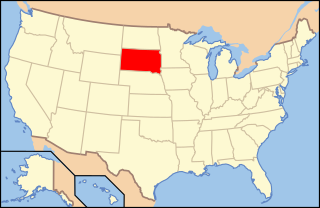
Lesbian, gay, bisexual, and transgender (LGBT) persons in the U.S. state of South Dakota may face some legal challenges not experienced by non-LGBT residents. Same-sex sexual activity is legal in South Dakota, and same-sex marriages have been recognized since June 2015 as a result of Obergefell v. Hodges. State statutes do not address discrimination on account of sexual orientation or gender identity; however, the U.S. Supreme Court's ruling in Bostock v. Clayton County established that employment discrimination against LGBT people is illegal under federal law.

The Equality Act is a bill in the United States Congress, that, if passed, would amend the Civil Rights Act of 1964 to prohibit discrimination on the basis of sex, sexual orientation and gender identity in employment, housing, public accommodations, education, federally funded programs, credit, and jury service. The Supreme Court's June 2020 ruling in Bostock v. Clayton County, Georgia protects gay and transgender people in matters of employment, but not in other respects. The Bostock ruling also covered the Altitude Express and Harris Funeral Homes cases.
Transgender rights in the United Kingdom have varied significantly over time, with the British transgender community facing ongoing challenges not experienced by cisgender Britons. These include various laws and public attitudes in regards to identity documents, as well as anti-discrimination measures used by or pertaining to transgender people, in the areas of employment, education, housing and social services, amongst others.

Gender self-identification is the concept that a person's legal sex or gender should be determined by their gender identity without any medical requirements, such as via statutory declaration.
LGB Alliance is a British advocacy group founded in the UK in 2019, in opposition to the policies of LGBT rights charity Stonewall on transgender issues. Its founders were Bev Jackson, Kate Harris, Allison Bailey, Malcolm Clark and Ann Sinnott. It has said that lesbians are facing "extinction" because of the "disproportionate" focus on transgender identities in schools. It has opposed a ban on conversion therapy for trans people in the UK, gender-affirming care including puberty blockers for children reporting gender dysphoria, and gender recognition reform.

The Gender Recognition Reform (Scotland) Bill is a bill passed by the Scottish Parliament, awaiting Royal Assent. The bill amends the Gender Recognition Act 2004 of the Parliament of the United Kingdom, making it simpler for people to change their legal gender. On 16 January 2023, the United Kingdom government announced that it would use section 35 of the Scotland Act 1998 to block Royal Assent for the bill, which, if done, would be the first such use of section 35.
References
- ↑ "Spain's Equality Ministry drafts law that would let citizens change official gender without medical checks". 3 February 2021.
- ↑ "Búsqueda de iniciativas - Congreso de los Diputados".
- ↑ "La 'ley trans' abre una nueva brecha entre PSOE y Unidas Podemos en el Gobierno". 3 February 2021.
- ↑ "Spain's governing partners show bad blood in public". 2 March 2021.
- 1 2 "Gender identity bill divides Spain's feminists, left-wing". Associated Press . 20 April 2021.
- ↑ Laudette, Clara-Laeila (3 February 2021). "Spain considers making it easier to officially change gender". Reuters.
- ↑ "Spain: Missed Opportunity on Gender Recognition". 20 May 2021.
- ↑ "Spanish policy makers say "no" to trans rights". 19 May 2021.
- ↑ "Spain: Trans rights supporters on hunger strike over new law". ABC News .
- ↑ "Vandals deface LGBT+ centre with transphobic graffiti amid fight for trans rights". 11 April 2021.